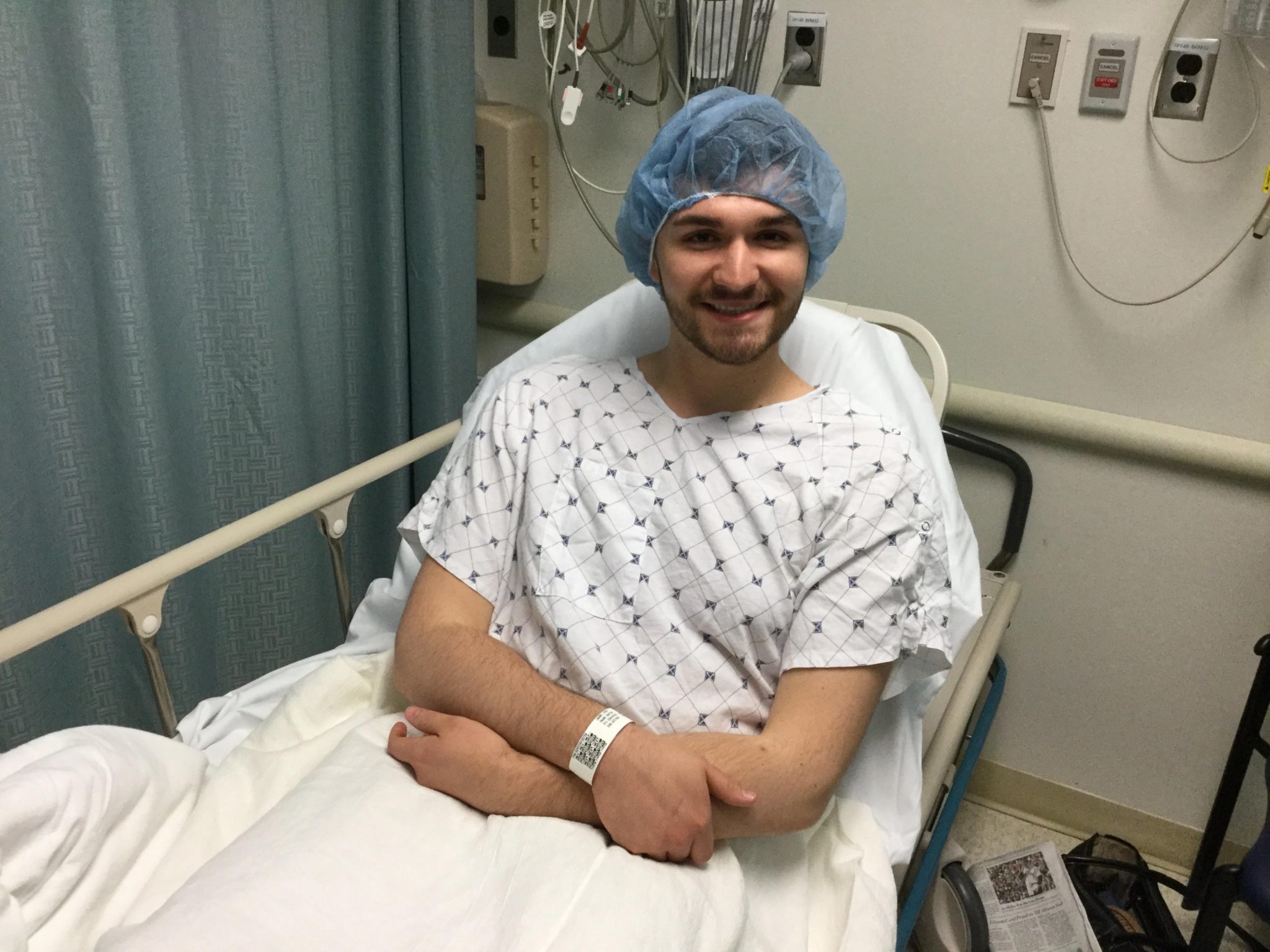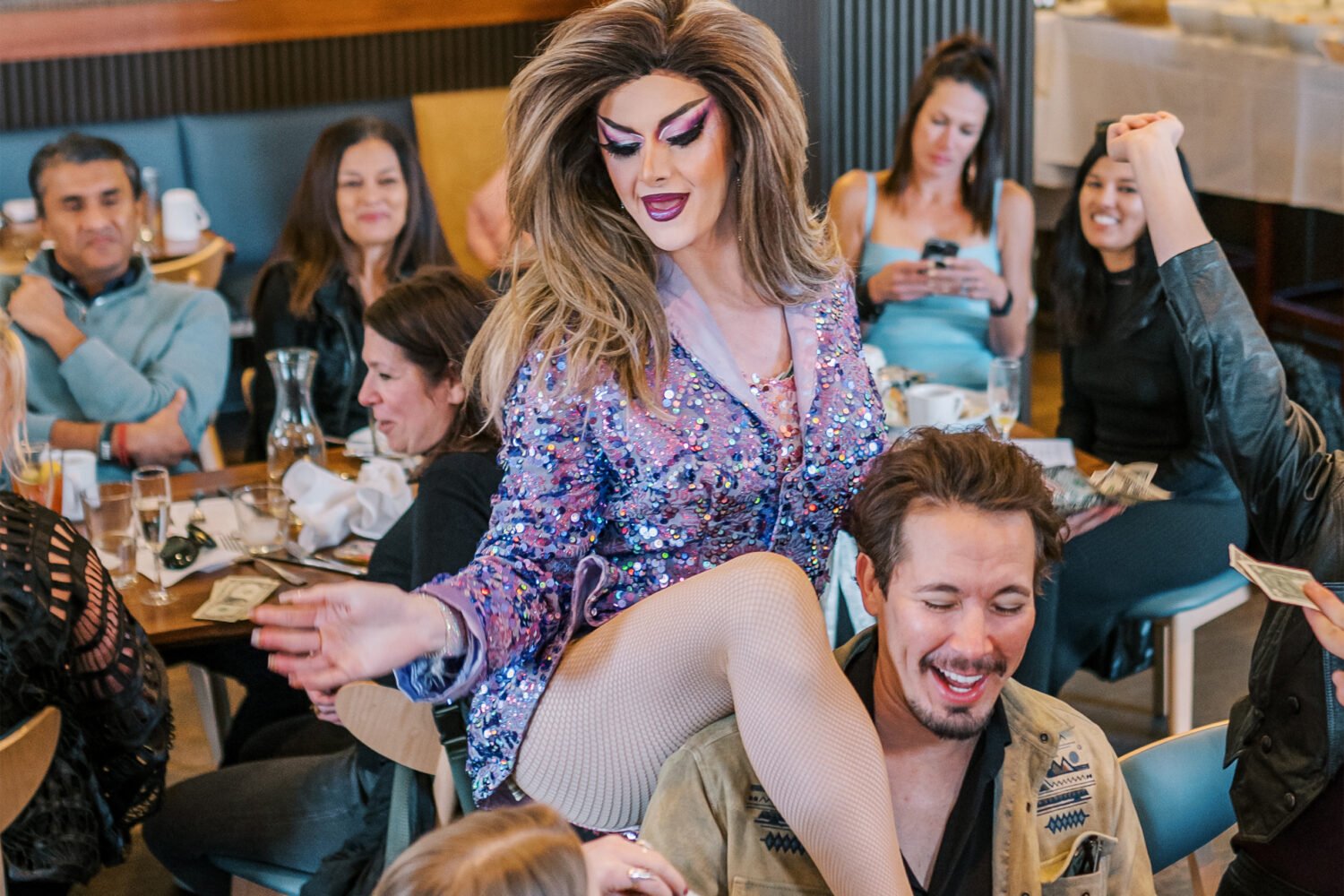In May, 24-year-old Crystal City resident Barton Lynch checked into MedStar Georgetown University Hospital to donate one of his kidneys—not to a friend or relative, but simply because he knew someone out there needed it more than he did. It was an extraordinary act of generosity, done out of a deep sense of frustration.
For years, Lynch regularly gave blood as a way to honor his father, who was diagnosed with cancer during Lynch’s freshman year of college. However, recently Lynch, who works for a consulting firm, started dating both men and women and per FDA policy, all men who have sex with other men cannot donate their blood unless they refrain from same-sex intimacy for a year.
Lynch describes his kidney donation as a form of philanthropic activism. “I didn’t go to work for three days,” he says, “so that someone could have their life given back to them.”
While Lynch wants the FDA will reconsider its guidelines for blood donation, he also hopes that by sharing his story he can raise awareness of other opportunities for gay and bisexual men to help. We talked to him about what led him to make this big decision.
What inspired you to donate one of your kidneys?
I had been donating blood my whole life, and it was good way for me to give back. Not that long ago I started dating guys, which now eliminates me from being able to donate blood. This frustrates me to no end, because I think it’s based on outdated science and outdated [HIV] scares. Other countries have changed their collection procedures and they’re not showing adverse effects, so it just seemed like this was one more reason to do it.
So I needed to find a way to give back that wasn’t giving blood. I know the need is there for kidney donations, so it seemed like a no-brainer—how could I not? The impact on me is relatively minor. I was back at work the following week. I’m blessed to have a support system with my friends, family, and work, who were encouraging me the entire time. And lifelong, there’s not going to be any changes for me—but I’ve completely changed someone’s life for the better.
What was the process like?
It sounds crazy, but it’s a lot easier than you think. I reached out to Georgetown University Hospital in October of last year, and in November they brought me in and I did every test you’ve ever heard of, medically. They had to collect 24 hours worth of urine, which was the worst part of the entire experience because I had to bring my jug into the office. I didn’t tell anybody, but it was really weird. Basically, after that, they let you know when you can donate, they look for someone who is a match for your blood type, and they find a recipient. It was only two weeks between them telling me the date and the surgery happening, and, I mean, the process of actual surgery was pretty easy. I was walking the same day, I went home the next day, and the pain was very low. I had surgery on Wednesday and was off my pain pills by Sunday. I was on Tylenol for a couple days after that, so for having major surgery and losing an organ, it seems very minor to me.
Do you know anything about who has your kidney now?
It goes into the other person the same day. I don’t know anything about the other person. I sent them a letter, and they can either read it or not, and reply or not. As far as I know, they have not done anything. But I did hear that it was a successful surgery.
Do you believe it’s time for us to reform blood-drive restrictions?
Absolutely. I sent a letter to the secretary of HHS last night. Other countries are changing, the technology for detection of HIV has advanced a lot since the ’80s. When we are constantly in need for blood, as a society, and you’re excluding an entire category of people for a reason that’s not based in science, it’s crazy to me. The questionnaire you fill out when you give blood doesn’t cover risky behavior, except for the question, ‘Have you had sex with another man?’ It doesn’t ask if you’ve had a new partner in the last year, if you’ve had 50 new partners in the last year. That behavior is obviously riskier than someone in a monogamous, same-sex relationship, so if anything, the blood supply is more dangerous in our current rules than it would be if we moved to a risk-based assessment.
For men who have sex with men, is there a medium between donating blood and donating your kidney?
Well, yes, but there’s not much. Anybody can be on the bone-marrow registry now—the rule [that banned gay and bisexual men] changed in 2015. I’m on the registry myself, although I haven’t been called yet. Once I am, however, I will go through with it.
Since you did this, has anyone you know said they’d also donate a kidney?
Several people have said they plan on donating now, and several people have asked me about the process and how to get involved, which is great. I would say to anyone, if you are able and if you want to do it, by all means. I can only speak to my experience, but it’s been extremely positive for me.
Are you planning on continuing your activism?
Well, I’m not too sure how to do that. At this point, I’m just reaching out and trying my best to raise awareness. I mean, I’m one person but I’m trying to make the noise that I can.
It’s a priority of mine to give of myself, to be a good volunteer, to frequently donate. Donating a kidney is more serious than donating blood, but it’s the same kind of equation for me. Low impact and high reward for someone else.



















